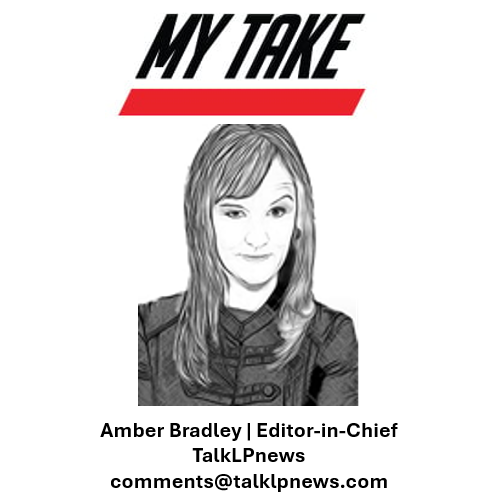Just wrapped up three days in Dallas at NRF PROTECT, and instead of summarizing the dates, location, and sessions (you can read those on the NRF website) I wanted to chat about something I’ve been thinking a lot about lately: the willingness to question the status quo – both at a conference and in your approach to professional development. This might be relevant because of the Malcolm Gladwell book I’m currently reading, Talking to Strangers (which is about why people ignore truth even when it’s staring them in the face), but more on that later. Or it might be because I’m often wondering how many of you out there can truly see this industry changing right before your eyes.
Just like in every industry, there is a cycle of change that moves from old to new, stale to innovative, old guard to new guard – LP is no different. In my opinion, conferences are almost like a flashpoint where you can see this clearer than at other points of the year because everyone is back together again for a few days – 365 days older.
Are there any questions?
Gone are the days of “that’s how we’ve always done it” – which is great! (and hopefully people quoting the “definition of insanity”) BUT – what has replaced it? What questions are we asking? Are we asking the hard questions or are we letting the status quo of PowerPoint and buzzwords wash over us?
How about:
- How does this differ from existing approaches?
- What specific results have you seen?
- What SPECIFICALLY are you talking about?
- What makes this innovative?
“So, what?”
As an industry, gone are the days of longing to sit at the executive table – we’re there for the most part. Filling those seats comes with a responsibility to think differently and challenge our industry to push even harder into the difficult task of solving problems with more than platitudes. For those that attended the sessions at NRF, there were many executives that raised the level of our profession by being brave enough to ask and answer the “so what?” questions.
The attendees who left Dallas with the most value were the ones who came prepared to think beyond conventional wisdom. They engaged with industry veterans who’ve lived through multiple cycles and can distinguish between “what’s really new” and “what’s cyclical.” They built relationships based on substantive discussions about shared challenges rather than just collecting business cards. And they, my friends, are the next generation of executives pushing our industry forward.
These executives and organizations are often described as industry disruptors or change agents. But I like the term “boundary spanners” or “outsider innovators” because they operate at the margins of the “established” industry standard BUT, they drive significant change despite lacking traditional credibility or recognition. I think you know where I’m going with this.
These organizations or people typically share several characteristics:
- They’re often dismissed as “not real industry players” because they don’t fit the traditional mold. They might be too small, too new, too edgy, too funny, too entertaining, come from adjacent industries, or challenge fundamental assumptions about how things should work or operate.
- They push conversations that make incumbents uncomfortable. While industry veterans focus on incremental improvements to existing systems, these outsiders ask fundamental questions like “Why does it have to work this way at all?” They’re willing to challenge the sacred mindsets and suggest approaches that seem radical to insiders.
- They operate with different constraints and motivations. Without legacy systems, established relationships, or reputational risk within the industry, they can experiment with approaches that traditional players can’t or won’t consider. This freedom often leads to breakthrough thinking.
- They face the “innovation paradox” – their outsider status gives them the freedom to innovate, but that same status makes it harder for them to gain credibility and adoption within the industry they’re trying to change.
These organizations are essentially the industry’s unconscious conscience, forcing uncomfortable but necessary evolution. At NRF PROTECT I ran into these people and organizations while we scoured the exhibit floor. I’ll be sharing interviews from these companies over the coming weeks and I invite you to tune in….and ask questions.
This un-recap recap is about broader thinking than the traditional status quo and that’s what we work hard to do here at TalkLPnews. We’re boundary spanners. We’re inside outsiders and that’s where we’ll stay to keep pushing innovation and prodding the traditionalists. It’s clearly a better experience for us all.
Want to come with us? Start your journey at APEX. Find out more here.

